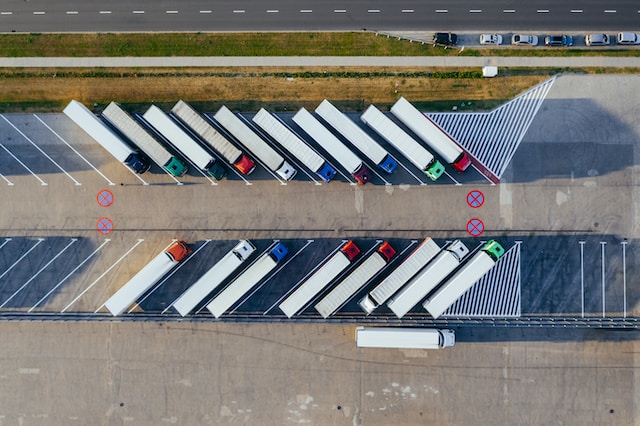Individuals and industries alike now have far better access to programs that would have previously been considered monotonous because of the development of technology. Incorporating technological improvements into our everyday lives has made it easier for us to do tasks more quickly. Online mapping, or GPS technology as it is more popularly known, has been one of these elements.
Nowadays, people frequently use Google Maps to find their way around an area or other neighboring locations. If anyone gets lost, Google Maps or a similar program makes it simple for them to find their way fast. Given this broad network of mapping influence, vehicle tracking systems have gained widespread popularity. We will discuss the technology in detail below.
What is a Vehicle Tracking System?
A vehicle tracking system is a simple technology that enables online tracking and control of vehicles. This can be accomplished by continuously utilizing a computer, smartphone, tablet, etc.
With car tracking technologies, it is now feasible to quickly and retrospectively monitor a vehicle’s speed, route, stopping locations, and overall length time on maps. This makes it easier to create a register and checkpoint containing history and current information.
Today’s best car tracking systems include GPS, GSM/GPRS, digital maps, and specialist software. The two bits of information that mobile data devices installed on moving vehicles typically broadcast are two. In this manner, the car’s precise location is tracked.
Many companies provide highly efficient and advanced Car gps tracker Systems. If you’re a business venture looking to upgrade to VTS, you can easily opt for them!

Why is the Fleet Vehicle Tracking System important?
1. Economical
By monitoring and alerting for excessive idling, wasteful routing, and driver behaviors like abrupt acceleration, a fleet management system can assist in lowering fuel expenditures for a company. By allowing managers to see exactly where employees are located and when they start and stop working, geofence technology is an excellent option for reducing payroll expenditure.
Numerous companies that have used the Fleet Vehicle Tracking system state that they have been able to cut back on overtime expenses, which are sometimes significant contributors to their exorbitant payrolls.
Additionally, in terms of maintenance, fleet management systems can keep tabs on and track what needs to be done based on a delivery company’s requirements and recommendations, or they can use features like engine diagnostics to create preventative maintenance schedules.
This can reduce unforeseen maintenance and the costs associated with emergency callouts and unscheduled downtime.

2. Risk Management
The job of vehicle fleets is such that they confront various daily risks. Risk management is crucial in every industry, from trucking firms to hotel shuttle services, to keep your fleet operating and your clients satisfied. Since fleet tracking software technology has been introduced, managing risk has been one of the biggest commercial challenges for clients.
Delivery Businesses can lower risk by using a fleet management system through:
- Real-time coaching and warning for drivers.
- Instantaneous reply and video proof of an incident for accident inquiry.
- Comparison of driving practices and methods.
- Support for audits and compliance.
- While fleet management software doesn’t altogether remove risk, it reduces it with built-in reminders and accurate, real-time tracking data.

3. Fleet Performance
For any delivery and fleeting company, longevity is critical. Preventing expensive vehicle breakdowns and repairs and ensuring that a fleet’s vehicles operate at top efficiency is a priority for any fleeting company.
Oil changes, inspections, diagnostic alerts, maintenance workflows, registrations, and other standard maintenance can all be easily tracked using fleet maintenance modules built into fleet management software.
When a vehicle needs repair, automatic alerts are sent through email or text to raise awareness about the requirements. This system benefits smaller fleets since extending their fleet longevity is crucial.
4. Safety and Security
Safety is the top issue for fleet owners today since the overall structure of roadways is riskier than ever. About 50% of Fleet Tracking software users claim that their fleet tracking system has contributed to a decrease in incidents. A fleet tracking system can improve safety through driver training programs, immediate audio alarms, and coaching recommendations. Other methods include:
- Abrupt acceleration and braking
- Tailgating
Drivers face challenges with mounting pressures for better time management and more efficient routing. However, with a fleet tracking system, drivers are more careful and pay closer attention to laws and other potential violations.
5. Analytics
By pinpointing the location of vehicles and other equipment, firms may speed up customer contacts, enhance work management, monitor unauthorized vehicle use, and protect assets from theft and misuse. Hence, the company’s overall analytical management.
Additionally, with more than 100 pre-built reports, the ability to create your accounts, and the ability to alter dashboards, the best fleet tracking software provides unforeseen visibility into every aspect of a fleet.
Conclusion
Vehicle Tracking Systems offer a range of information that can make firms more cost-effective. You can easily monitor and enhance your drivers’ performance, lower fuel consumption, improve routes, and lower risks by looking at vehicle trends and GPS data.







